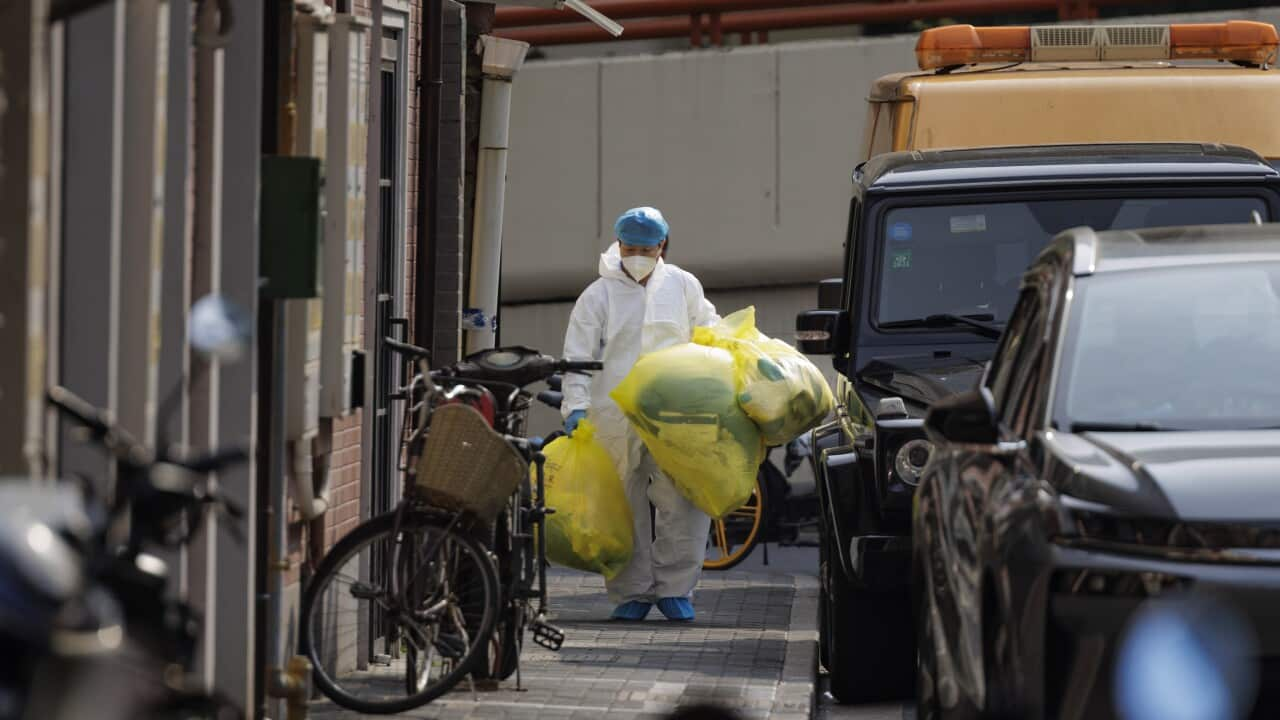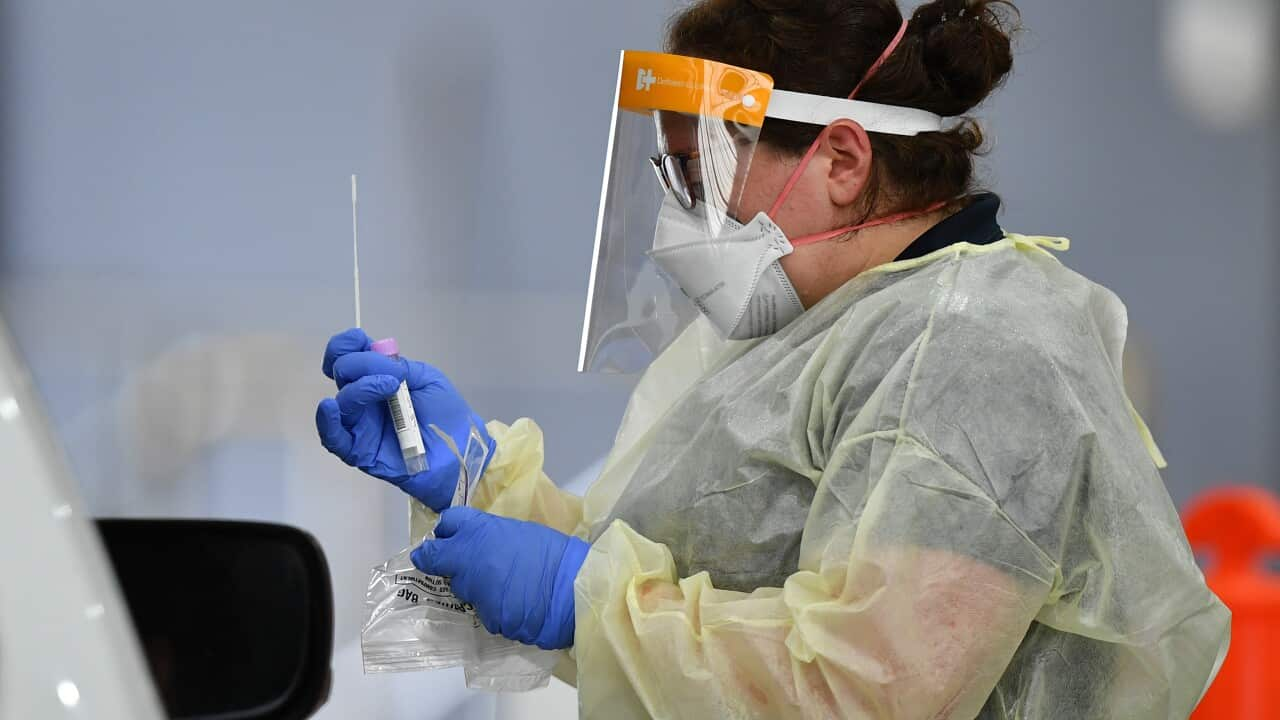Fresh surges of COVID-19 infections show the pandemic is nowhere near over, the World Health Organisation's chief lamented on Tuesday, warning that the virus is running free.
Tedros Adhanom Ghebreyesus said he was worried that case numbers were shooting up, putting more strain on health systems and workers.
The number of COVID-19 cases reported to the WHO increased 30 per cent in the past two weeks, driven by sub-variants of the Omicron strain and the lifting of control measures.
"New waves of the virus demonstrate again that COVID-19 is nowhere near over. As the virus pushes at us, we must push back," he insisted.
He told a news conference that as transmission increases, governments must also deploy tried-and-tested measures like mask-wearing and improving ventilation.
"Sub-variants of Omicron, like BA.4 and BA.5, continue to drive waves of cases, hospitalisation and death around the world," Mr Tedros said.

Tedros Adhanom Ghebreyesus said COVID-19 cases are surging worldwide. Source: AAP
Furthermore, tests, treatments and vaccines are not being deployed effectively.
"The virus is running freely and countries are not effectively managing the disease burden based on their capacity," he said, both in terms of hospitalisation of acute cases and the expanding number of people with Long Covid.
COVID-19 remains a global health emergency
The WHO's COVID-19 emergency committee met Friday via video-conference and determined the pandemic remains a Public Health Emergency of International Concern, the highest alarm the WHO can sound.
WHO emergencies director Michael Ryan told the meeting recent changes in testing policies were hindering the detection of cases and the monitoring of virus evolution.
The committee stressed the need to reduce transmission as the implications of a pandemic caused by a new respiratory virus would not be fully understood, the WHO said in a statement Monday.

Tourists wearing face masks as a precaution against the spread of COVID-19 in central London. Credit: SOPA Images/Sipa USA
"This impedes assessments of currently circulating and emerging variants of the virus," the WHO said, feeding the inability to interpret trends in transmission. The committee said the trajectory of virus evolution and the characteristics of emerging variants remained "uncertain and unpredictable".
It said the absence of measures to reduce transmission increasing the likelihood of "new, fitter variants emerging, with different degrees of virulence, transmissibility, and immune escape potential".
A fourth dose for Europe, masks return to Russia
Meanwhile the WHO's European office recommended a second booster shot of a Covid vaccine for older people and vulnerable groups.
COVID-19 cases have been rising sharply since the end of May around most of Europe. Coronavirus cases have risen 57 per cent in Moscow over the past week, the Russian capital's health authorities said.
"We recommend that you wear a mask in public places because the new Omicron sub-variants BA.4 and BA.5 spread more rapidly from person to person," Moscow social services wrote on Telegram.

Moscow residents are advised to wear face masks in indoor public places and get booster shots as Moscow registers a rise in COVID-19 cases. Credit: TASS/Sipa USA
Entire city locked down in China after a single COVID-19 case
Hundreds of thousands of people were under lockdown in a small Chinese city Tuesday after just one case of COVID-19 was detected, as Beijing's strict no-tolerance virus strategy showed no sign of abating.
China is the last major economy glued to a zero-COVID-19 policy, crushing new outbreaks with snap lockdowns, forced quarantines and onerous travel curbs despite mounting public fatigue and damage to the economy.
Authorities in several regions have imposed a range of restrictions as they struggle to tamp down fresh flare-ups driven by the fast-spreading Omicron variant.

A woman asks people passing-by to buy her food through the opening in quarantine barrier, in Shanghai. Source: EPA / ALEX PLAVEVSKI/EPA
None of the city's 320,000 people are allowed to set foot outside their homes until midday Thursday, the notice said, adding that basic necessities would be delivered by local authorities.
Residents are not allowed to use their cars without permission and must obtain official authorisation to travel under "closed-loop" conditions in case of emergencies, the notice said.
Nearly 250 million people in China are now under some kind of virus control measures, more than double last week's number, Japanese bank Nomura said on Monday.
Fears have grown about tighter COVID-19 measures in Shanghai, which endured a gruelling two-month lockdown earlier this year punctuated by supply shortages and isolated protests.
Most of the megacity's 25 million residents have been ordered to get two COVID-19 tests between Tuesday and Thursday, as daily case figures continue to hover in the double digits.













